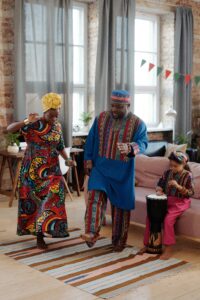BEING A MIGRANT IN 2021
Who is a migrant?
According to the IOM (International Organization for Migration), a migrant is “a person who moves away from his or her place of usual residence, whether within a country or across an international border, temporarily or permanently, and for a variety of reasons”.
Moving away from the place where we live can seem something extremely cool because sometimes we just want to change, because our daily routine is somehow limiting us, and we cannot wait to escape it. But some people in the world do not want to go away to change their lifestyle or to find themselves; they are only looking for a place where it is worth living, where it is worth.
Being a migrant is never easy. You leave your home, your country, your language, sometimes even the people you love and arrive in a place you do not know, and you have to search for a job, a place to stay, in the hope of a better living.
But, what is it like to be a migrant during the Covid-19 pandemic?
 This emergency has changed the way of living everywhere in the world, but, as it often happens, the weak ones suffer more than the others. Unfortunately, according to some research by OECD (Organization for Economic Co-operation and Development), migrants have twofold the risk of being affected with Covid-19, because many of them work in the so-called “essential” sectors, which cannot be stopped (healthcare, retailing, delivering, household works).
This emergency has changed the way of living everywhere in the world, but, as it often happens, the weak ones suffer more than the others. Unfortunately, according to some research by OECD (Organization for Economic Co-operation and Development), migrants have twofold the risk of being affected with Covid-19, because many of them work in the so-called “essential” sectors, which cannot be stopped (healthcare, retailing, delivering, household works).
What happened in Italy?
In Italy, migrants have suffered the consequences of the pandemic even more: During the Covid-emergency, the level of exploitation of foreigners in the countryside has increased by 15/20%. This means 40-45 thousand more people exploited, working more hours, in worse conditions, and for a lower salary. Moreover, we have noticed that migrants are more complaisant as they started to consider themselves as “second” to Italians.
After the health crisis, the Italian government approved a legalisation about immigrants involved in agricolture and domestic works. Some say that it is “a great step ahead”, while others define the amnesty as a “great failure”. Who is right?
The truth is that migrants are the weak part of the population in every state. They are alone, they have to face radical changes in their lives, and, most of the time, they have to accept whatever working condition they are offered otherwise they lose the possibility to remain in the country.
If it was my turn?
 Needless to say, one more wall migrants have to pull down is that of prejudice. How many times do we hear about episodes of abuse, especially verbal ones, against who is considered “different”? Of course, this applies to all those categories of people that, nowadays, society considers as different, in a very derogatory way (say homosexuals, disabled and colored people). Maybe, the whole world should have more selflessness? Maybe, every one of us should think “what if it was me?”. Prejudice is what puts a distance between migrants and the citizens of a country. What if we all cooperated more? What if we all could explain ourselves and understand each other, instead of building a wall that is harder and harder to break down? We all dream of an integrated society, of an inclusive world, where respect and comprehension should be the basis of our relationships.
Needless to say, one more wall migrants have to pull down is that of prejudice. How many times do we hear about episodes of abuse, especially verbal ones, against who is considered “different”? Of course, this applies to all those categories of people that, nowadays, society considers as different, in a very derogatory way (say homosexuals, disabled and colored people). Maybe, the whole world should have more selflessness? Maybe, every one of us should think “what if it was me?”. Prejudice is what puts a distance between migrants and the citizens of a country. What if we all cooperated more? What if we all could explain ourselves and understand each other, instead of building a wall that is harder and harder to break down? We all dream of an integrated society, of an inclusive world, where respect and comprehension should be the basis of our relationships.
So let conclude with a very famous quote by Mahatma Gandhi: “Be the change you want to see in the world”.

